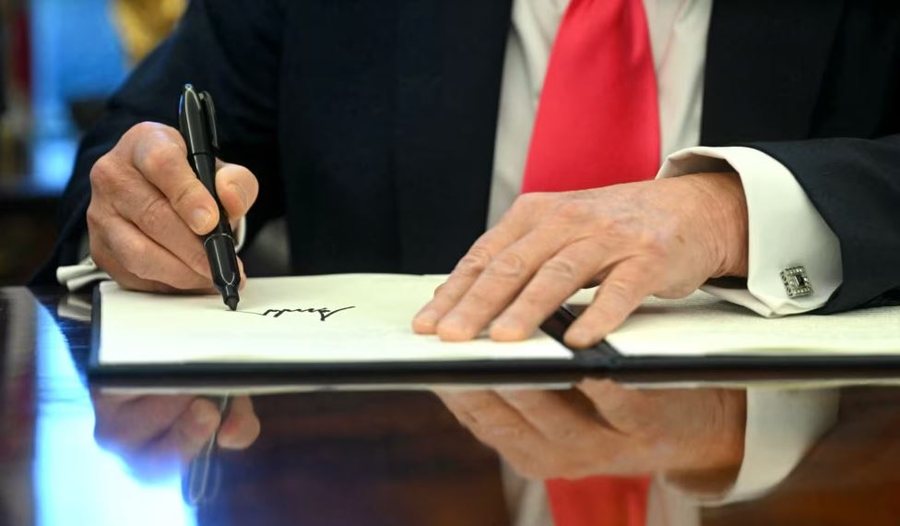
President Donald Trump will sign an executive order that would make English the official language of the United States for the first time in the country's history, a White House official announced Friday.
The official did not provide details on when the order might be signed. The news was first reported by the Wall Street Journal.
The United States has never had an official language at the federal level, but several states have designated English as their official language.
The Republican president made the issue of illegal immigration a central issue of both of his campaigns for the White House, and he has embraced the use of English in public life.
During his first presidential campaign, Mr. Trump criticized his Republican rival Jeb Bush, who used a different language during his election campaign.
At a press conference in New York in 2015, Mr. Trump said that "we are an English-speaking nation."
As the Wall Street Journal reports, President Trump's executive order would reverse a directive from former Democratic President Bill Clinton that agencies and recipients of federal funds provide language assistance to non-English speaking populations.
Among the executive orders that President Trump has signed since taking office on January 20 is one that aims to prevent taxpayer money from being used to support illegal immigration, by prohibiting the use of the federal budget for immigrants who are in the country illegally.
There are 32 countries that have designated English as an official language, according to ProEnglish, a group that advocates for English as an official language.
The issue has been problematic for several states, including Texas, where the use of Spanish in public life has been controversial for years. The state senator in 2011 demanded that an immigrant rights activist speak English rather than his native Spanish during a legislative session. That reignited a decades-old debate over whether or not Spanish should be spoken in Texas, once part of Mexico and before that, part of the Spanish empire.
The issue has been painful for many older Mexican-American Texans, who remember being punished for speaking Spanish in school in the 1950s./ VOA (A2 Televizion)











